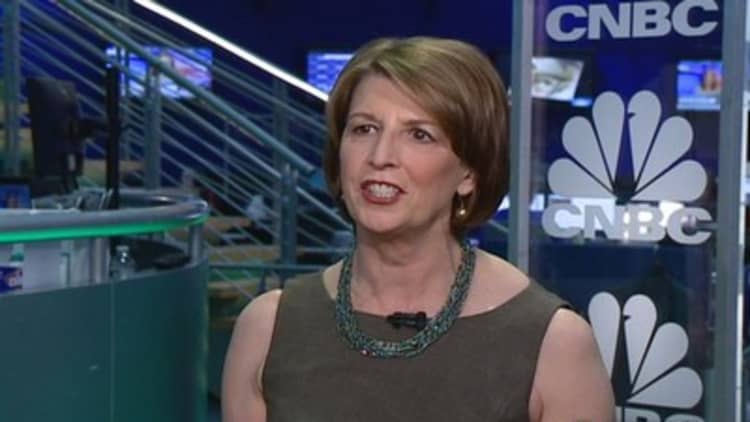If you have college tuition, room and board under control, congratulations!
But don't breathe too easy. Students regularly spend thousands of dollars annually on higher education extras, and you need to factor those into your college cost calculations.
"The whole area of what I'll call variable, mushy kinds of costs can sometimes be a gotcha for people," said Anne Sturtevant, executive director of higher education for the College Board.
Topping the list is textbooks. On average, students now spend $1,200 a year on books for their classes, according to the College Board.
Read MoreCollege textbook costs more outrageous than ever
Textbook costs have risen by 82 percent over the past decade, three times the rate of inflation, according to the Government Accountability Office. As a result, some students are simply forgoing the books they are supposed to have for their courses. A survey by the U.S. PIRG Education Fund found that 65 percent of students have opted out of buying textbook because of cost.
"How do you prepare for your tests?" asked Dara Duguay, author of "Please Send Money: A Financial Survival Guide for Young Adults on Their Own." "That's really disturbing. When students don't consider these extra costs, then they are going to have to make some of theses devastating decisions."
Then there are all those other things students spend money on, from a data plan for a phone to a trip home or a late night pizza. Colleges estimate those costs in a lump sum, but an individual student's costs can vary widely.
For example, tech gadgets can easily become expensive. A survey commissioned by re:fuel, a marketing and promotions firm, found that students have an average of 6.9 devices. Some 85 percent of the survey respondents had laptops, 69 percent had smartphones—and 68 percent had video game consoles.
Food can get expensive, too. A survey by 21st Century Insurance found that in 2011, students spent an average of $765 eating off campus. And when they were asked how they obtain food most often, more than two-thirds said they order takeout or go out to eat.
Transportation adds up as well for some students, depending on how far a college is from home or whether they are commuting regularly.
Read More
How can you keep these various costs in check? A little common sense and research can go a long way, Duguay said.
On textbooks, it pays to comparison shop—especially since an individual book can cost as much as $200. Sites like Bookfinder.com let students search online for the best prices.
Renting textbooks is another option. Chegg.com and coursesmart.com are just two of many sites that allow students to rent textbooks for the duration of a class.
As for technology, students should think carefully about what they really need for school and what is a luxury, Sturtevant said. A laptop is one thing; an Xbox is another.
"If the student can be a big consumer right now, have any sort of electronic equipment and text plan and unlimited access to movies and blah blah, it's going to be really hard for a student to make an adjustment to a frugal environment in college," she said. "Having those kinds of conversations now around 'should we spend now on the latest gadget or put money in your college savings fund' can help. But it doesn't seem like there is a lot of that going on right now."
Read More529 rebels: Alternative ways to save for college
Choosing the right data plans can also make a big difference. A slightly more expensive plan may make sense if it keeps a student from logging expensive overage charges.
As for those miscellaneous expenses like going out with friends after a big exam, Duguay recommends good, old-fashioned tracking of spending, whether in a little notebook or on a phone. A month of meticulous record keeping is ideal, she says, but two weeks can also be helpful.
"Keep track of every single penny," she said. "It is those things that they don't get bills for that they get shocked by."
Read MoreMoney mistakes awaiting college students
Credit card issues have more limits on how they can market to students, and that is helping many students avoid major overspending, Duguay said. Also, students may land a part time job or work–study gig to help defray costs. Even so, they may not avoid money surprises.
"For many of them, it's the first time they're having a part-time job and income," Duguay said. "Because of that, they're going to make mistakes."
—By CNBC's Kelley Holland. Follow her on Twitter@KKelleyHolland.

